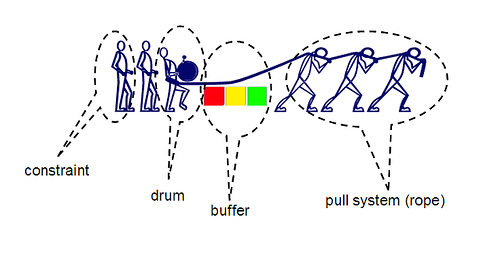Goldratt’s Critical Chain is a project management methodology that emphasizes the importance of identifying and managing the most critical tasks in a project in order to ensure its successful completion. The methodology was developed by Eliyahu Goldratt, a physicist and management consultant, and was first presented in his book “Critical Chain” in 1997.

The critical chain methodology is based on the idea that traditional project management methods often fail because they do not take into account the uncertainties and variations that can occur during a project. The methodology seeks to address these issues by focusing on the critical path of a project, which is the sequence of tasks that must be completed on time in order for the project to finish on schedule.
The critical chain approach involves several key principles. First, it requires the identification of the critical chain, which is the longest sequence of dependent tasks that must be completed on time for the project to be successful. This critical chain is then used as the basis for scheduling the project.
Second, the methodology requires the use of buffer time to account for uncertainties and variations in task completion times. Rather than including buffer time for each individual task, as is typically done in traditional project management, the critical chain approach consolidates buffer time into a single, centrally-managed buffer that is applied to the critical chain tasks.
Third, the methodology emphasizes the importance of managing resources effectively in order to ensure that they are available when needed. This involves identifying and managing resource constraints, and using techniques such as resource leveling and resource smoothing to optimize resource utilization.
Finally, the critical chain approach emphasizes the importance of ongoing monitoring and control to ensure that the project stays on track. This involves regular progress reviews, identification and resolution of issues, and ongoing adjustments to the project schedule as needed.
Overall, Goldratt’s Critical Chain methodology represents a significant departure from traditional project management approaches, and has been shown to be effective in a variety of industries and contexts. By focusing on the most critical tasks and managing resources effectively, the critical chain approach can help organizations achieve greater project success rates and improve overall project management effectiveness.
 (909) 987-1774
(909) 987-1774 Email Us
Email Us







